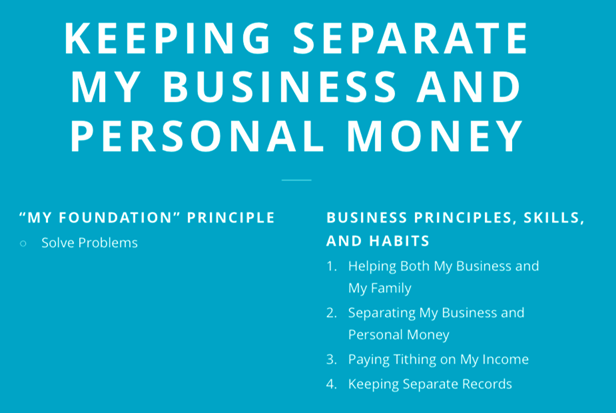
Watch the recorded training session HERE
Read: ROBERT D. HALES “God expects us to help solve our own problems. . . . We are thinking, reasoning human beings. We have the ability to identify our needs, to plan, to set goals, and to solve our problems.” Every Good Gift, New Era, Aug. 1983, 8, 9
Discuss: “Let us not become weary in doing good, for at the proper time we will reap a harvest if we do not give up.” (Galatians 6:9) Why does God sometimes let us struggle to find answers or solutions to our problems?
Share with the group how you did with last week’s commitments:
Ⓐ I will have conversations with at least five potential customers. Go to where customers are buying the product you want to sell. Ask why they buy the product from this business. Ask how they would improve the product if they could. Ask how they feel about the product’s price.
SEPARATING MY BUSINESS AND PERSONAL MONEY
Video: Separate-personal-biz money-self salary (below)
Discuss: What do we learn from this video about keeping our business money separate from our personal money?
Read:
- Pay yourself. As your business begins to earn money, you need to decide how to pay yourself. Many business owners start by paying themselves a small salary, which can increase as the business grows and becomes financially stable.
- Keep separate bank accounts. The money you pay yourself should go into your personal bank account. This account should be separate from your business bank account.
- Don’t rob your own business. Successful business owners do not take money from their business bank account to give financial help to family or friends.
Video: Water-business-separate personal – biz records (below)
Read: Let’s practice separating our business and personal money. For the following example, imagine that you have a business that sells drinking water.
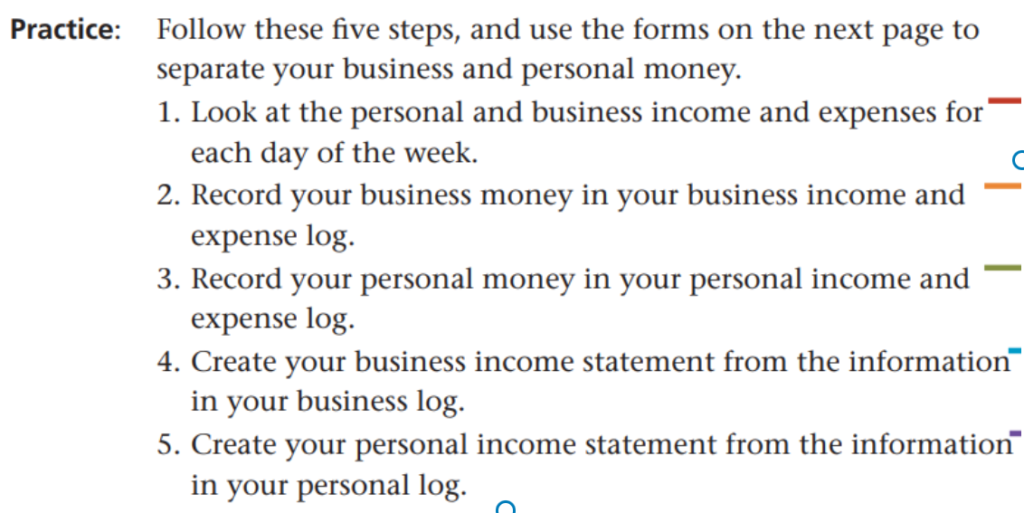
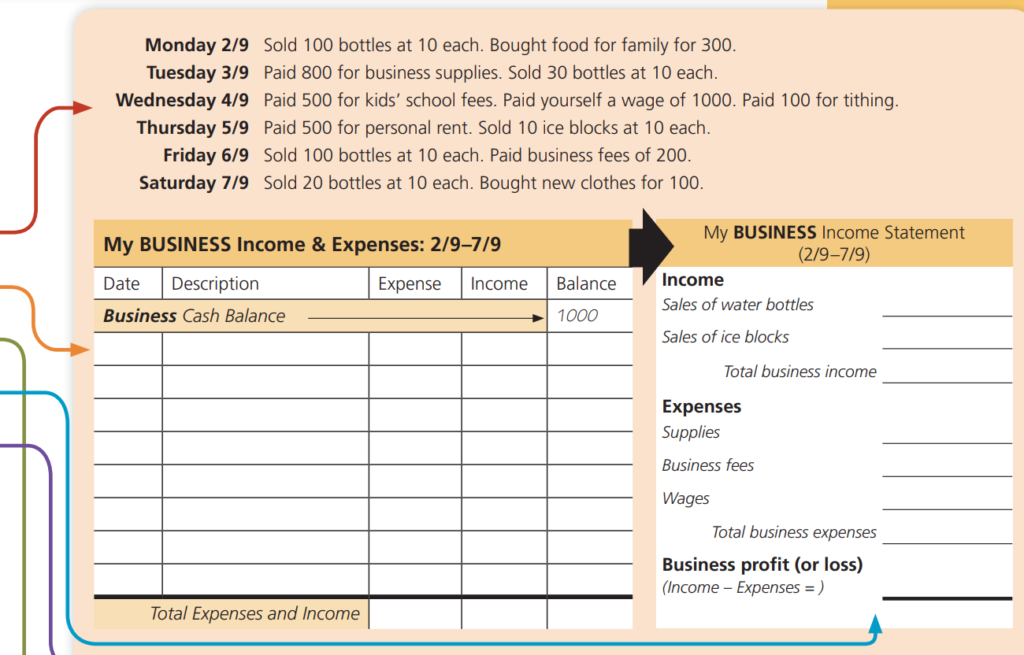
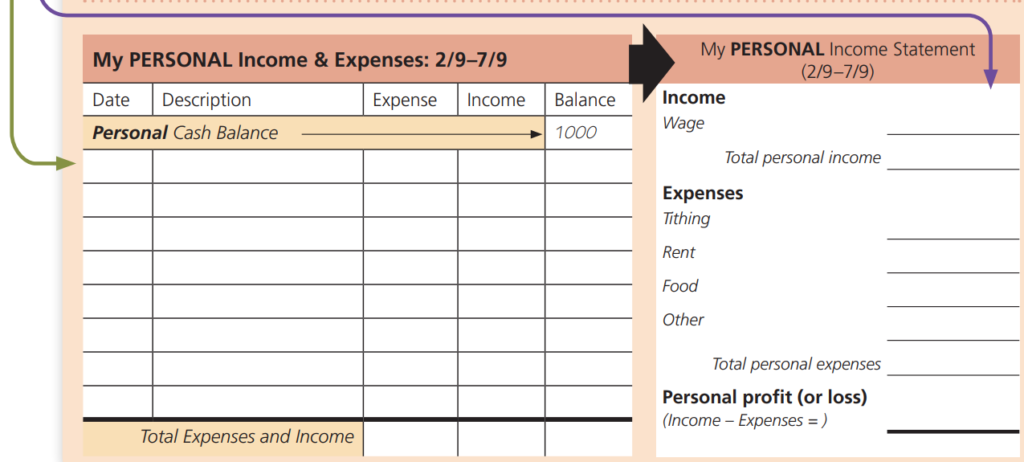
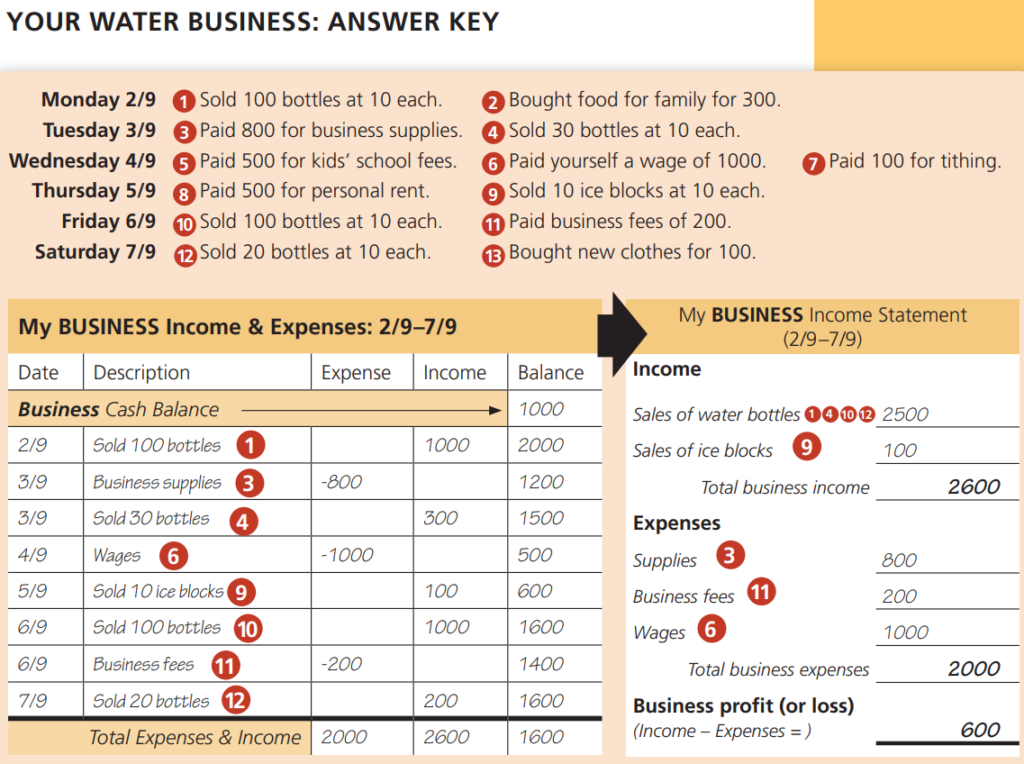
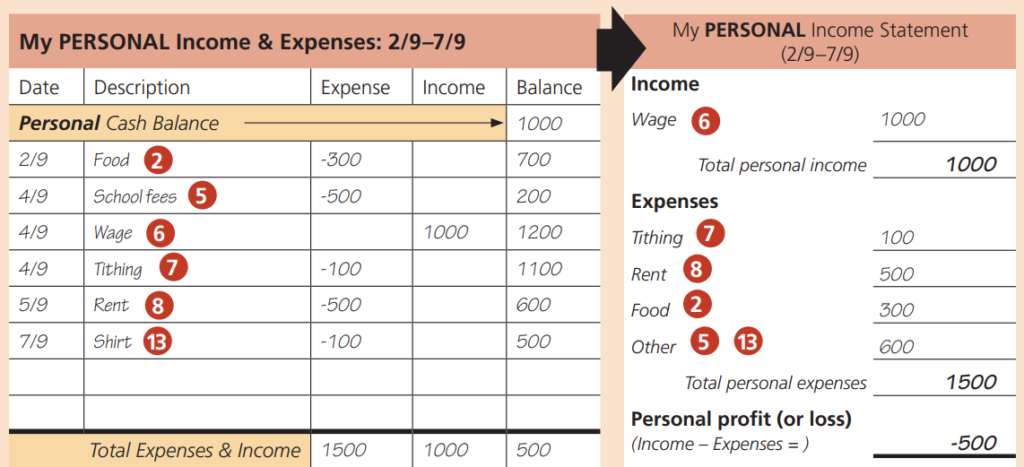
Read: Successful business owners understand that they need to save money for emergencies. Problems or difficulties will happen and savings will be needed. When considering helping someone financially, we should use wisdom to determine reasonable limits and conditions. We should rely only on extra personal resources and should never use business funds. Above all, we need to make certain that our business is a “house of order” (D&C 88:119).
PAYING TITHING ON MY INCOME
Read: We receive great blessings from paying tithing on our income. If we keep our business money and personal money separate, it’s easier to calculate our tithing.
Remember these principles:
1. Keep business and personal money in separate bank accounts.
2. Pay tithing on personal income (your self-salary) that you receive from your business.
3. Money in your business is not tithed. You should use that money to pay for business expenses, salaries, and business growth opportunities.
Read: Successful business owners keep daily records and use them to make informed business decisions. While many business owners don’t enjoy keeping records, they make it a habit and a priority because they know that having accurate revenue and expense information will help their business succeed and grow.
We will work hard this week to keep separate accounts and to avoid the common mistake of getting so busy with business tasks that we get careless with critical, daily record keeping.
HOMEWORK: MAKE-A-SALE CHALLENGE
At this point you should begin selling the product or service your business will be providing, if you’re not already doing so. During the next week, make at least one sale to a customer. Be creative as you work to sell your service or product. You may feel that your service or product is not yet ready to sell. However, selling will provide motivation to get your business going. Selling will also teach you what your customers think about your service or product. If you have difficulty selling, this feedback can help you change your business idea so it better meets the customer’s needs. Decide how many customers you will need to talk with to make a sale—and then go do it.
Next week you will be asked to report (1) your experience with selling to at least one customer and (2) the number of days you sold.
Read: As you begin to sell, you will learn the best ways to find customers. Be willing to experiment with new ideas until you find one or more approaches that work. After you attempt to make sales this week, fill out the homework assignment below so your facilitator and Entrapov can see how you did and offer any advice they have.
MY COMMITMENTS
Ⓐ I will pay myself a salary or wage and keep my business money in a separate account from my personal money.
Ⓑ I will keep separate records for my business and personal money.
